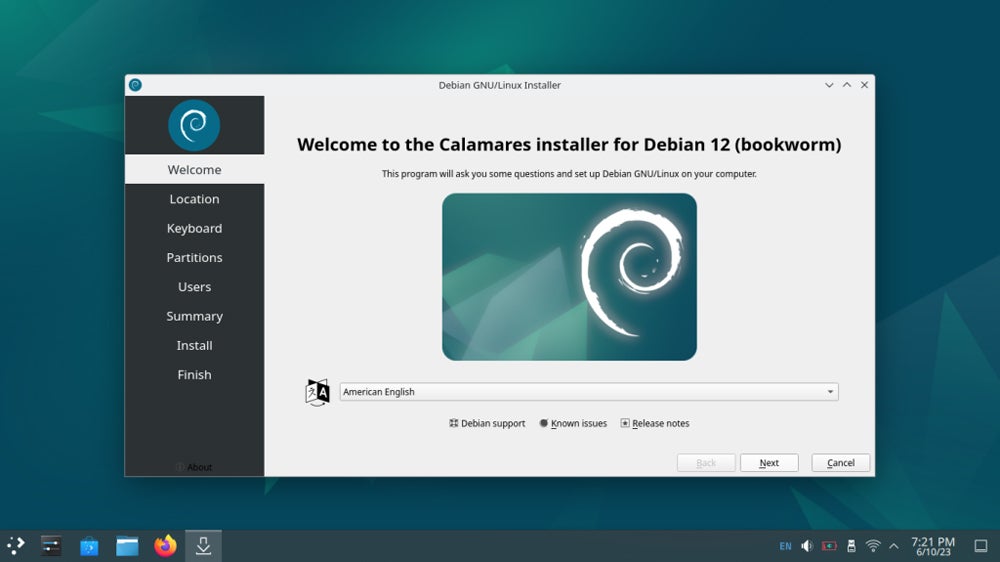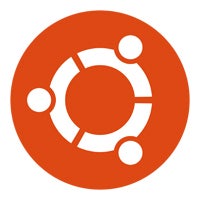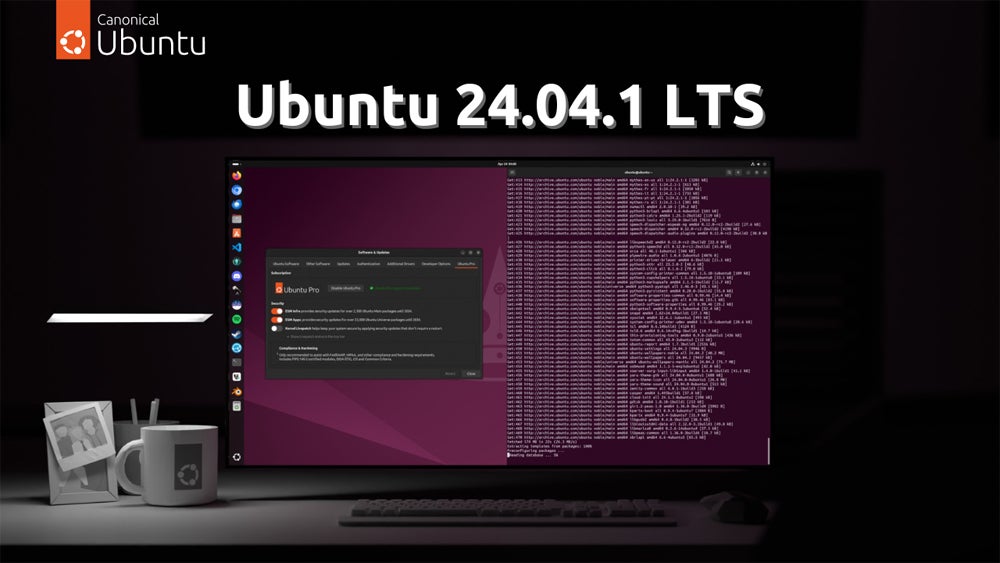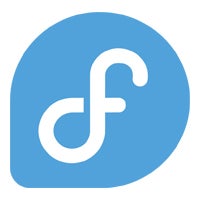If you’ve ever requested a seasoned Linux consumer what desktop distribution is highest for a brand new consumer, chances are high that lovely excellent you could be informed Ubuntu. If you ask about server distributions, chances are you’ll listen the similar resolution. You may also listen Debian added to the combination.
Debian and Ubuntu are unfastened and superb Linux distros. There is not any transparent winner in a competition. However, I reckon Ubuntu is extra available and user-friendly. Debian is famed for its safety, a view I and the net group percentage. As one consumer at the Debian User Forums well places it: “Need handholding? Go with Ubuntu. Want privacy? Use Debian.”
Although those two open-source running techniques percentage many similarities, in addition they fluctuate. In this text, I will be able to read about each Linux distros and decide which is the most productive have compatibility for your corporation wishes.

What is Debian?
Debian is ceaselessly known as the “Mother of all distributions.” Ubuntu is in line with Debian, and loads — if no longer 1000’s — of distributions in line with Ubuntu. The Debian Project, created through Ian Murdock, first launched Debian on Aug. 16, 1993.
The title Debian used to be impressed through the primary title of his then-girlfriend Debra Lynn. Debian codenames are in line with the names of characters from the Toy Story movies, and the risky trunk of the OS is called after Sid, the nature within the movies who destroyed his toys.


What is Ubuntu?
Ubuntu is an open-source running gadget in line with Debian, which used to be evolved through Canonical. Ubuntu’s preliminary free up used to be model 4.10 (Warty Warthog) in October 2004. Ubuntu is launched in 3 other variations:

SEE: Ubuntu Server: A Cheat Sheet (roosho)
Debian vs Ubuntu: Feature comparability
| Package managers | ||
| Default desktop environments | ||
| Desktop and server releases | ||
| Security mechanisms |
Head-to-head comparability: Debian vs Ubuntu
Package managers
Both Debian and Ubuntu percentage the similar base bundle control gadget, apt and dpkg. Apt (and apt-get) are used to put in applications from faraway repositories, while dpkg is used to put in downloaded .deb recordsdata.
The largest distinction between Debian and Ubuntu is that Ubuntu ships with the Snap common bundle supervisor put in through default. Canonical evolved snap however isn’t discovered on Debian, even if it may be put in. That’s no longer a big inconvenience, however I see it for example of ways Ubuntu is friendlier to the consumer.
SEE: Tools and Tips for Creating Data Backups on Linux Servers (roosho Premium)
Sudo
Both distributions use the sudo safety mechanism, however most effective Ubuntu provides the default consumer created upon set up to the sudo workforce through default.
For Debian, you both need to manually upload customers to the sudo workforce with a command or run as the basis consumer, equivalent to usermod -aG sudo USER – the place USER is the username to be added.
For this explanation why, I to find Ubuntu fairly extra handy than Debian, as with the bundle managers.
For safety causes, it’s extremely really helpful you upload no less than one common consumer to the sudo workforce to steer clear of having to log in or transfer to the basis consumer.
SEE: Windows, Linux, and Mac Commands Everyone Needs to Know (Free PDF)
Release cycle
Ubuntu is available in two other releases: LTS (Long Term Support) and common releases. The LTS releases are made to be had each and every two years and obtain 5 years of usual safety repairs for all applications within the “Main” repository. Regular releases are made to be had each and every six months and most effective obtain 9 months of beef up.
If customers go for Ubuntu Pro (previously referred to as Ubuntu Advantage) subscription, they are able to get admission to Expanded Security Maintenance, which covers safety fixes for applications in each the “Main” and “Universe” repositories for 10 years.
Debian, then again, has 3 other releases: Stable, Testing, and Unstable. Of the 3, most effective the Stable free up will have to be used for manufacturing functions. However, the Testing free up does come with more moderen tool, so if you wish to have Debian with extra lately launched tool, cross with the Testing department. The Testing model is used as the foundation for the Stable department. Only the Stable department has a typical free up cycle, which is each and every two years.
SEE: How-to Guide for Linux Administrators (Free PDF)
Application and tool availability
Neither Debian nor Ubuntu send with bleeding-edge tool, and I’d say there’s no outright winner on this division. However, between the 2, Ubuntu defaults to more moderen applications. It’s value noting that Ubuntu plays all updates with the consumer logged in and most effective calls for a reboot if the kernel is upgraded.
Debian, then again, values balance. Because of that, it does no longer purpose to free up the newest variations of maximum tool.
According to Debian, as of November 2024, “more than 63,879 packages, ranging from news servers and readers to sound support, FAX programs, database and spreadsheet programs, image processing programs, communications, net, and mail utilities, Web servers, and even ham-radio programs are included in the distribution.”
In phrases of Ubuntu, it supplies packages for internet surfing (Chrome, Firefox), messaging, gaming (Steam, Discord), content material advent (OBS Studio), place of work productiveness equipment (LibreOffice), and construction equipment. These are available by means of the Ubuntu Software Center, which permits putting in further tool from third-party repositories if wanted. Ubuntu says customers too can get admission to 1000’s of packages in the course of the Snap Store.
SEE: 5 Tips for Managing Linux User Accounts (roosho Premium)
Supported platforms
Ubuntu is formally suitable with 5 processor architectures — x86_64 (aka AMD64), ARM64 (aka AArch64), PowerPC64 (aka POWER), System z (aka S390X), and RISC-V. Previously supported architectures come with x86, PowerPC, and SPARC64.
Debian helps each 64 and 32-bit {hardware}, in addition to 64-bit ARM, ARM EABI, ARMv7, little-endian MIPS, 64-bit-little-endian MIPS, 64-bit little-endian PowerPC, and IBM System Z.
SEE: Ubuntu Server Installation Checklist (roosho Premium)
Desktop environments
Both Debian and Ubuntu default to the GNOME desktop surroundings. However, the GNOME desktop discovered on Ubuntu is a customized model, which provides a dock and a couple of different tweaks to make it distinctive.
You can decide to put in different desktop environments on each, and Debian even makes it simple to choose your desktop of selection right through set up (from GNOME, Xfce, KDE Plasma, Cinnamon, MATE, and LXDE). If you have got older {hardware}, I’d suggest MATE as it could run smartly on techniques with modest {hardware} necessities.
There also are variations of Ubuntu that send with other desktops, equivalent to Kubuntu, Xubuntu, and Lubuntu. The preliminary letters are the most obvious clues, as Kubuntu makes use of KDE Plasma, Xubuntu makes use of Xfce, and Lubuntu makes use of LXQt.
SEE: Top Six Linux Distributions for Your Data Center (roosho Premium)
Alternatives to Debian and Ubuntu
If Debian and Ubuntu don’t appear interesting, imagine the variety of possible choices. There are many to make a choice from, however I’ve decided on among the highest beneath.

Linux Mint is in line with Ubuntu. Mint opts for a default desktop surroundings, Cinnamon, this is a lot more acquainted to the hundreds. Unlike Ubuntu’s GNOME GUI (which is a extra fashionable take at the desktop), Cinnamon is going out of its method to retain an excessively acquainted design that gives simply sufficient fashionable design to stay it from taking a look like a desktop from the early 2000s whilst preserving the whole lot that made interacting with a PC so easy in the ones days.
You can learn extra about this Linux distro with roosho Premium’s Guide to Linux Mint.

Fedora is an open-source running gadget backed through Red Hat that incorporates tool disbursed beneath more than a few licenses. Fedora is the upstream supply for Red Hat Enterprise Linux, which is a checking out flooring for Red Hat’s flagship product. Fedora used to be first launched in November 2003 and has a tendency to concentrate on innovation, integrating new applied sciences, and dealing at the side of the upstream Linux group, so the paintings is to be had for all Linux distributions.
Get extra main points with this Fedora vs Ubuntu assessment.

Red Hat Enterprise Linux is an open-source running gadget. RHEL has received its popularity amongst large enterprises for offering a contemporary, security-oriented OS. Companies with complex virtual assets, era stacks, and workloads use the OS to scale and carry out on-premises, digital machines or packing containers, and within the cloud. The OS is qualified on loads of clouds and with 1000’s of {hardware} and tool distributors.
Choosing between Debian and Ubuntu
Some other folks would possibly surprise which of the 2 is best for programming and which is quicker.
In phrases of programming, I reckon Debian and Ubuntu are similarly helpful and ambitious. I appeared round, and the comments on Quora and Reddit has a identical view. For example, one consumer on Quora notes that “For general-purpose programming, the differences between those operating systems [plus Fedora] are so small that there’s no difference.” Meanwhile, over on Reddit, a dialogue about Debian and Ubuntu additionally finds no victors on this fight.
The query of pace is every other subject. The consensus is Debian wins that spherical as it’s sooner, and I consider that opinion. For instance, a consumer on Reddit astutely defined, “Ubuntu is generally a bit ‘heavier’ than Debian, more things get installed and started by default. I can also imagine, that snap does not help (snap definitely uses more disk space, I don’t know about loading time and responsiveness.)”
Ultimately, I feel the selection can also be narrowed down slightly merely: Do you wish to have an running gadget that puts an excessively prime worth on balance on the expense of more moderen packages and a few simplicity, or do you wish to have an OS that prioritizes user-friendliness?
For a remarkably solid running gadget, cross with Debian. For an OS that gives exceptional {hardware} detection and simplicity of use, cross with Ubuntu.
Either approach, each Debian and Ubuntu are nice running techniques that may be utilized by as regards to any person.






No Comment! Be the first one.